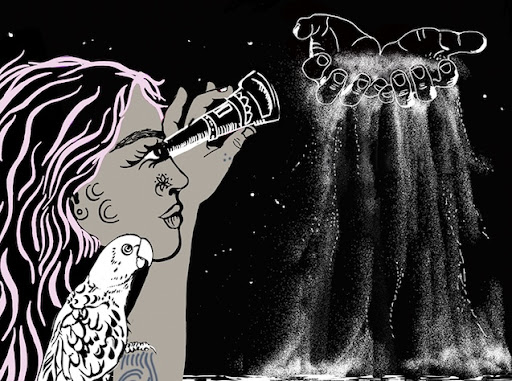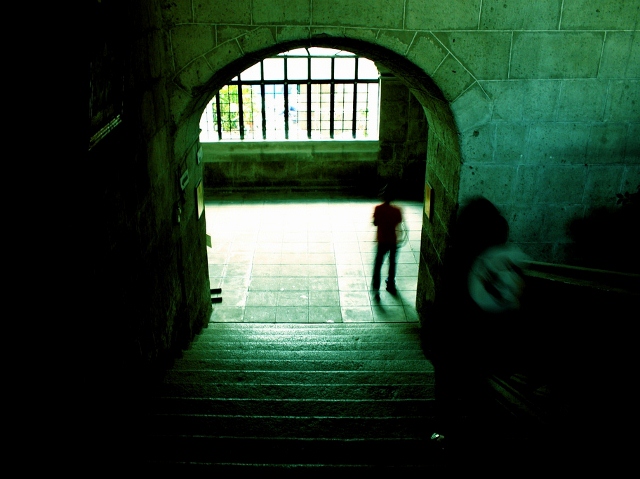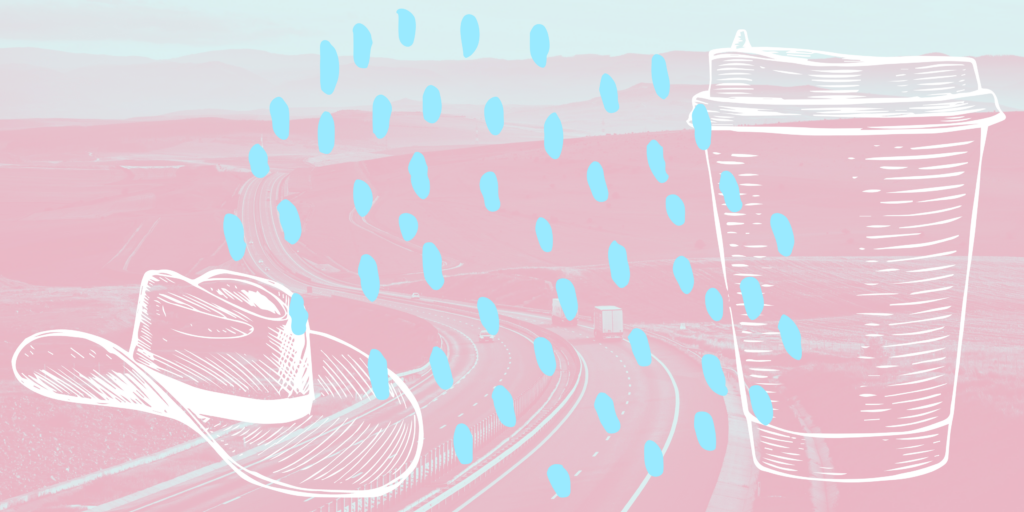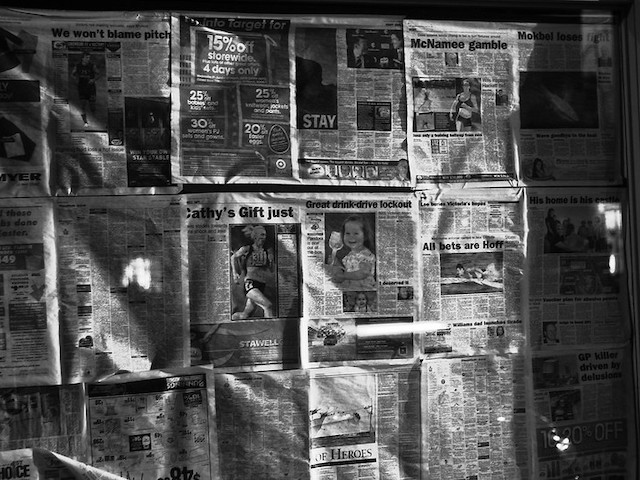I don’t remember the trees, though. My sister doesn’t either.

December 21, 2022
A monarch butterfly, translucent and pure, lands on a flower. Then it chooses another. It has its choice of a whole planter full of flowers, overflowing with feathery pink and butter-yellow and regal violet blooms—like a gift box of amusements for a child.
When I was a child, I didn’t see butterflies on this street, or planters overflowing with flowers, but there was a gumball machine by the door to my dad’s store, its offerings temporary and sweet. At the end of the day, he’d unlock the machine from the back so I could reclaim my quarters. Excitement was small; it fit between my fingers, easily crushed between my teeth.
The stockroom at the back of my dad’s store smelled like metal, car parts, and gasoline. I marched to its far end with purpose, gum sweet on my tongue, armed with a long inventory number that I sang to myself in my head, like a song, so I wouldn’t forget how it went. I stood on the tips of my toes to reach a shelf with the same number, to nudge a box out by its corner.
The box was the same size as the one my new school shoes had come in, but it was so much heavier; I had to make my arms strong as I walked to keep it from pulling me to the ground. I presented it to my dad, sandwiched between my too-small hands, held high, proud.
“Perfect,” my dad said. “Got it in one. You’re so smart. Your sister would have asked, ‘Sorry, what was the number again?’ or come back with the wrong one.” His words were cruel, his imitation a pitchy whine that didn’t sound at all like my sister, but his eyes were so happy when he looked at me that I thought I was meant to feel happy, too. “How can you be half her age, and still so much smarter than she is?”
The store isn’t here anymore. Neither is the gumball machine. Neither is my dad. They all still exist, somewhere, in their own changed shapes, but nowhere close to me. The brick sides of the buildings on this street are covered with murals now, in bright slices of color that make me feel viscerally happy, but temporally displaced.
My sister parallel parks her car between two cars much nicer than ours. We settle into pastel-colored patio seats outside a café. The outer wall behind us is painted with one of those candy-bright murals. Planters, bursting with blooms, adorn the curb beside us.
There’s a park across the street, bordered by tall trees that must have been here all along, growing. I don’t remember the trees, though. My sister doesn’t either. And nobody with a store on this street would remember us. Gentrified time moves like hot coffee, filtered and sold; burning our tongues when sipped too soon, stinging with each sip even after it cools.
“Oh, yes,” the cafe’s owner says, as I flutter one hand ambiguously in the direction where our dad’s store used to be, while my sister nods quietly. “We get a lot of people who say they used to live nearby.” Her tone is friendly, but her eyes are a sullen blue apology. She quickly moves on.
The password for the Wi-Fi is “read more books.” I’m trying to write one. The work doesn’t come easy to me—I feel like every phrase needs to be a perfect demonstration of craft, like I need to impress somebody who isn’t there. Like I’m holding so much at once, always childishly trying to prove that I can.
Every time I’m stalled, I tell my sister what I’m trying to describe, so she can supply a word.
She always finds the right one.
This story is part of the Remains notebook, which features art by Chitra Ganesh.



